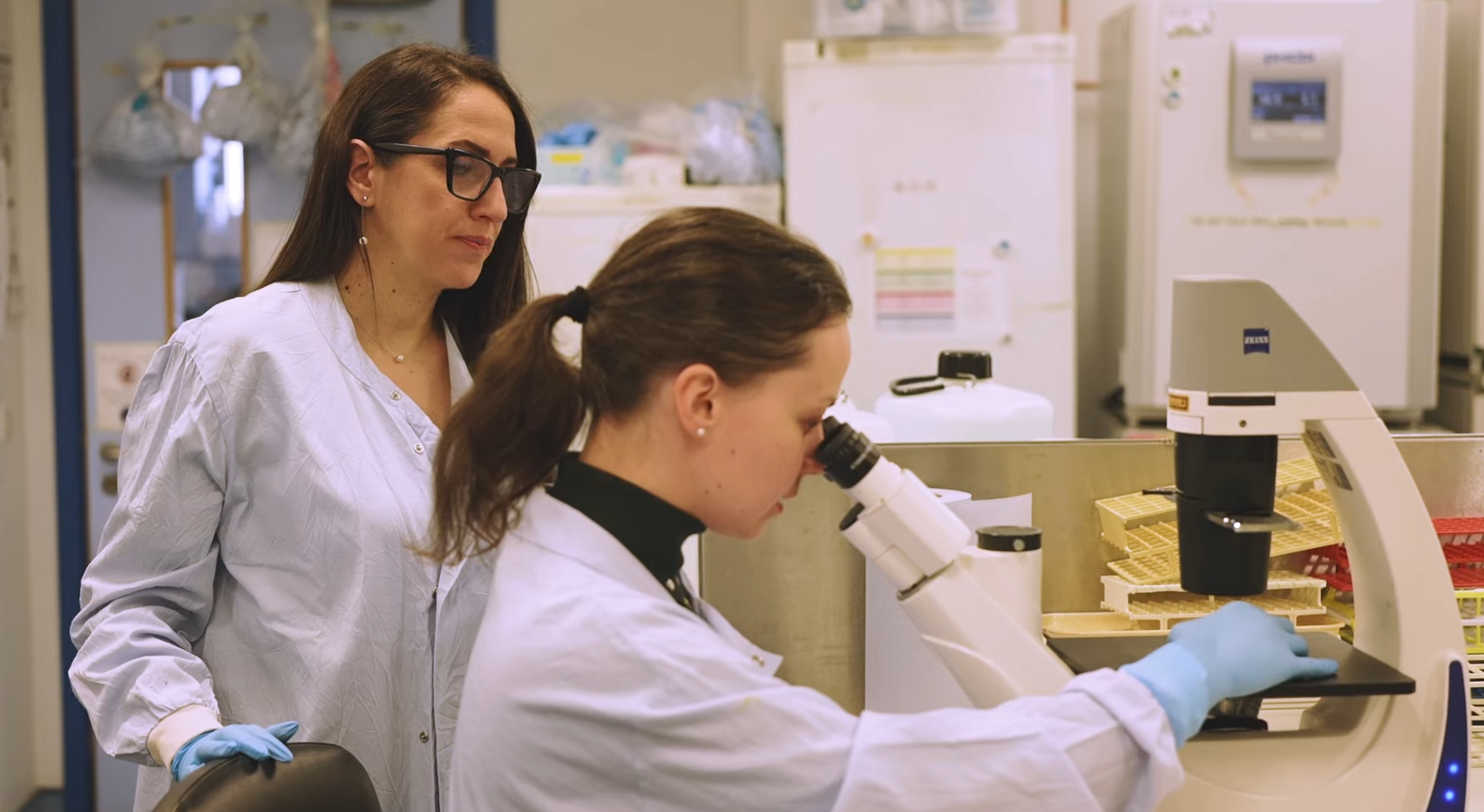Research uncovers pioneering method to deliver cognitive disorder treatment
Published: 22 October 2024
In a world-first, research by the School of Infection & Immunity's Professor Lilach Sheiner, Professor Oded Rechavi from Tel-Aviv University University, and an international team of collaborators has pioneered a new way to deliver treatment to the brain using an engineered Toxoplasma gondii parasite.

In a world-first, research by the School of Infection & Immunity's Professor Lilach Sheiner, Professor Oded Rechavi from Tel-Aviv University, and an international team of collaborators has pioneered a new way to deliver treatment to the brain using an engineered parasite.
Published in Nature Microbiology, the study, titled ‘Engineering a Brain Parasite for Intracellular Delivery of Proteins to the Central Nervous System’ has attempted to tackle one of the most significant challenges faced in treating cognitive disorders: crossing the blood-brain barrier.
The international research team worked with the common brain parasite Toxoplasma gondii, already estimated to be carried by a third of the global population in its dormant state, which has evolved to travel from the digestive system to the brain, where it secretes its proteins into neurons.
Researchers were keen to learn whether this parasite - with some key changes - could instead be used to deliver key therapeutic proteins that could help treat neurological diseases, something proteins are unable to do on their own.
While most neurological conditions, including Alzheimer’s Disease, Parkinsons and Rett Syndrome, have been linked in some way to protein dysfunction, targeting the problem at source has proved complex.
Delivering therapeutics – including targeted proteins – across the blood-brain barrier and into the correct location inside neurons, is difficult, and has so far limited the treatment options for these neurological conditions.
In this study, researchers explored whether the Toxoplasma gondii parasite could act as a therapy-delivery vehicle into brain cells.
To test their hypothesis, the team first had to find out if they could effectively make the parasites produce the therapeutic proteins, and then afterward test whether the parasites would be able to ‘spit’ the proteins back out into affected brain cells.
They focused on engineering the parasites to deliver the MeCP2 protein, which has already been proposed as a promising therapeutic target for Rett syndrome, a debilitating neurological disorder caused by mutations in MECP2 gene.
The first breakthrough came when the team was able to engineer Toxoplasma gondii to produce the MeCP2 protein.
Further experiments confirmed that the engineered parasites do indeed deliver the protein to the target cell location in both the lab, in brain organoids, and in mice models – all thanks to a large team of collaborators with the necessary expertise.
The team are now focused on further engineering the parasites such that it dies after delivering the protein, to prevent harm to cells, tissues, and, ultimately, the brain.
This breakthrough work suggests that, with further research and testing, brain parasites could potentially play a role in the delivery of therapeutic proteins to the brain, and perhaps other applications.
This experimental method, the first successful step in discovering whether parasites could be engineered for this purpose, represents an exciting new field of research.
Sii's Professor Sheiner said: "This is a blue-sky project where our collaborative team employed out-of-the-box thinking to tackle the long-standing medical challenge of brain therapy delivery.”
The journey ahead is long, however, with years of work in terms of research and testing required before the parasite would be 'usable' as a therapeutic delivery vehicle, as Professor Sheiner explained.
She added: “The concept is not without challenges, considering the dangers involved with Toxoplasma infection. For our work to become a treatment reality, it will require many more years of careful research and development to enhance efficiency and improve safety.”
Co-lead Author Professor Rechavi said: “Evolution already ‘invented’ organisms that can manipulate our brains; Instead of re-inventing the wheel, we can learn from them and use their abilities.”
Research Team
Shahar Bracha, Hannah J. Johnson, Nicole A. Pranckevicius, Francesca Catto, Athena E. Economides, Sergey Litvinov, Karoliina Hassi, Marco Tullio Rigoli, Cristina Cheroni, Matteo Bonfanti, Alessia Valenti, Sarah Stucchi, Shruti Attreya, Paul D. Ross, Daniel Walsh, Nati Malachi, Hagay Livne, Reut Eshel, Vladislav Krupalnik, Doron Levin, Stuart Cobb, Petros Koumoutsakos, Nicolò Caporale, Giuseppe Testa, Adriano Aguzzi, Anita A. Koshy, Lilach Sheiner, and Oded Rechavi
First published: 22 October 2024

